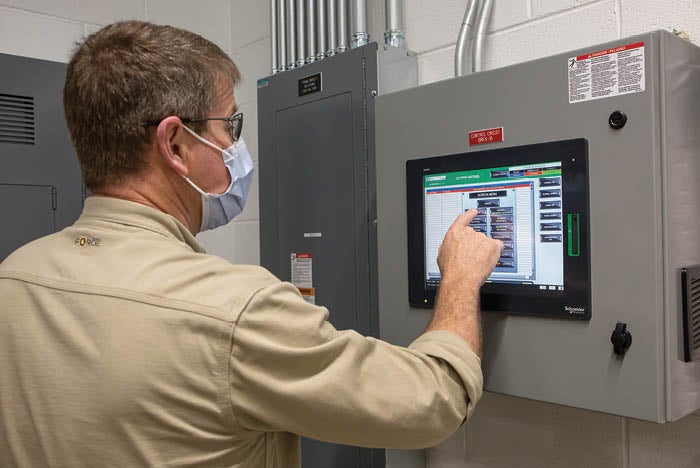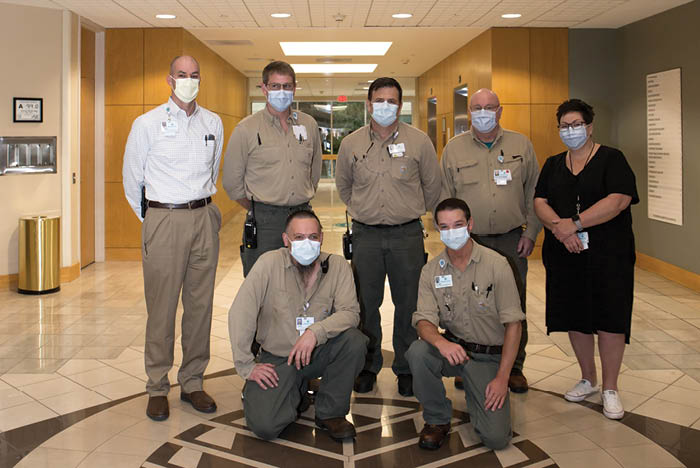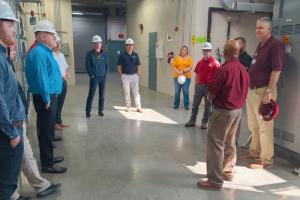The road to becoming an ‘Energy Performance Expert’

Ronald Morehead, mechanic four and lead electrician, checks power consumption rates on the main switchgear for the hospital’s energy plant.
Photo by Kevin M. McCarthy
Jody Hensley, a maintenance mechanic at Atrium Health Cleveland, Shelby, N.C., received advanced energy-efficiency training through Atrium Health’s Energy Connect program. He became a designated “Energy Performance Expert” after his first year of training, and he now looks for ways to make the facility more energy efficient at all levels — from the chiller plant and air handlers down to individual patient rooms.
The training taught Hensley the ins and outs of energy use and how to apply those principles to systems at his facility. He points to one example that involved understanding how to drive a car to maintain speed without wasting energy.
“For an HVAC system, that translated to the use of the [variable air volume] box and saving energy by opening the damper to its maximum position and slowing down the fan,” he says. “It made us go back and look at our whole mechanical system and the valves and dampers. We’ve been able to slow down a lot of our motors and pumps just by following that simple example.”
For Hensley, the on-site training that followed the classroom instruction was an invaluable opportunity to work directly with energy specialists. When he identified an energy-efficiency issue or concern at the facility, he could present it, discuss options and determine the best solutions. The training also helped him start thinking outside of the box about energy-efficiency strategies.
“We learned how we could save more just by making small adjustments,” Hensley says. “For example, in a patient room, it may be that the window shades aren’t thick enough to keep out the sun, which forces that room to overcool. Our goal here is always to be as energy efficient as possible without impacting patient comfort.”
Hensley also credits the leadership at Atrium Health Cleveland for supporting his work by allocating the time and funding needed to identify issues and make improvements. With energy efficiency as an organizational priority, he feels that he can be proactive and create meaningful change.
“I enjoy the challenge of improving energy efficiency, and I want to find and fix things,” Hensley says. “But I also know that if I can save energy and reduce expenses, then we can help lower the cost of health care, fund new facilities or put that money back into research. In the end, it helps patients as well as the organization.”





